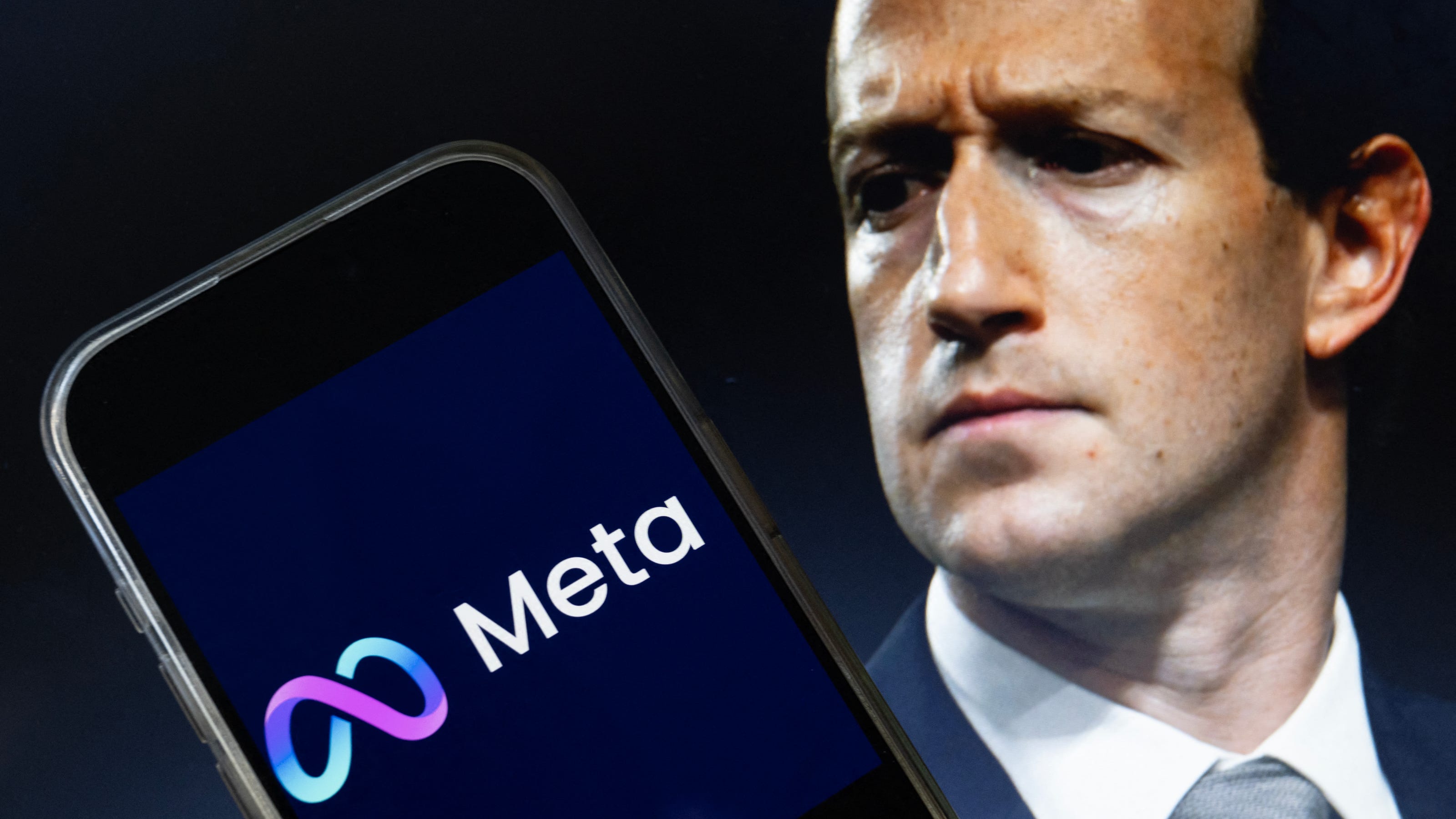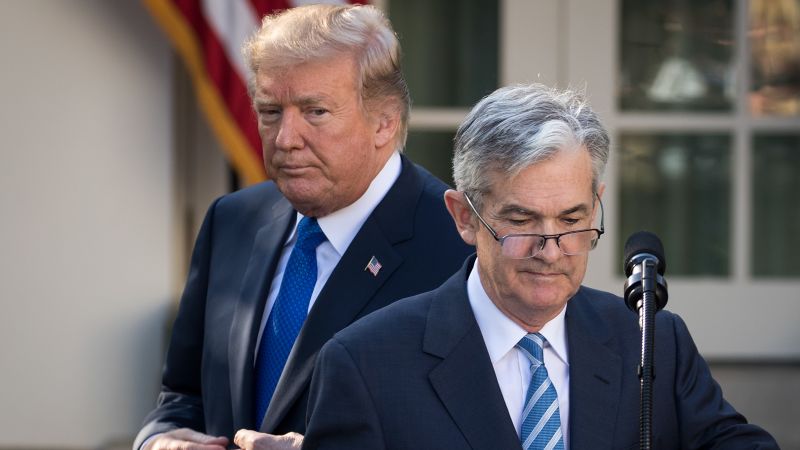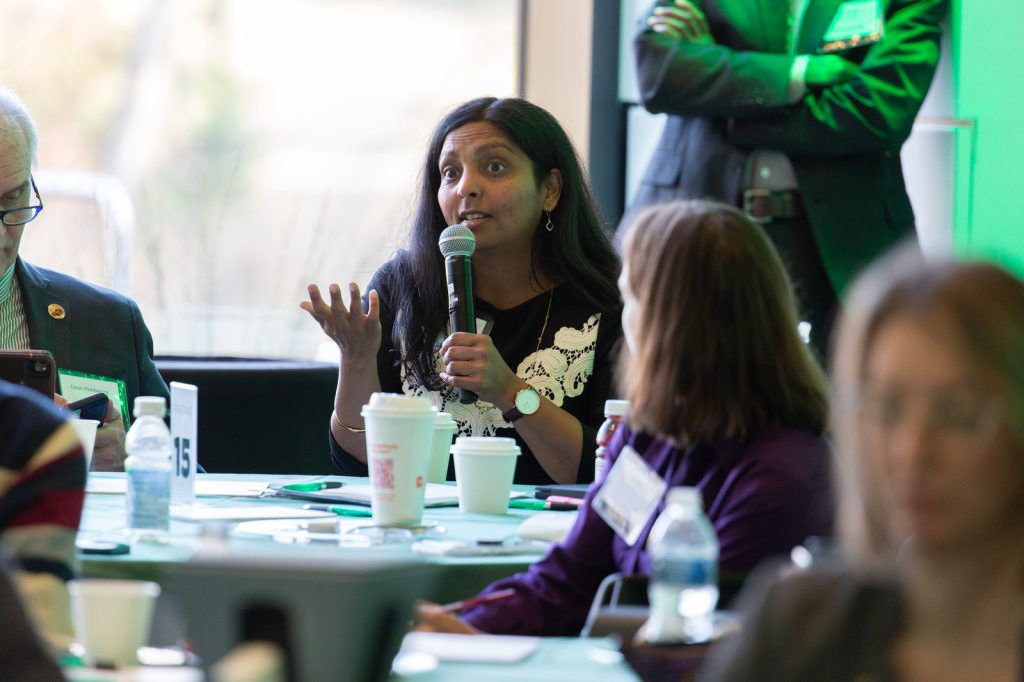Zuckerberg And The Trump Era: A New Phase For Meta

Table of Contents
The Rise of Misinformation and the Challenge to Content Moderation
The Trump presidency witnessed an unprecedented surge in the spread of misinformation and propaganda across social media. Meta, then primarily known as Facebook, initially struggled to effectively combat the deluge of fake news and manipulated content. This challenge was amplified by the platform's algorithm, which often prioritized engagement over accuracy, inadvertently boosting the visibility of misleading narratives.
- Examples of significant misinformation campaigns: The spread of false claims about the 2016 US presidential election, including allegations of widespread voter fraud, and the proliferation of conspiracy theories surrounding the COVID-19 pandemic.
- Meta's initial responses (and their shortcomings): While Meta implemented some fact-checking initiatives and removed certain accounts, its responses were often criticized as too slow and insufficient to effectively curb the tide of misinformation. The platform's scale made comprehensive monitoring incredibly difficult.
- Increased scrutiny from lawmakers and the public: The failure to effectively moderate content led to increased calls for stricter regulation and greater transparency from lawmakers and the public alike. This intensified pressure to reform content moderation policies.
The inherent biases within Meta's algorithms further complicated the situation. The algorithms, designed to maximize user engagement, inadvertently amplified sensational and divisive content, including misinformation, leading to echo chambers and the polarization of online discourse.
Political Advertising and its Ethical Dilemmas
The Trump era also highlighted the ethical dilemmas surrounding political advertising on Meta's platforms. Targeted advertising, a cornerstone of Meta's business model, allowed political campaigns to micro-target specific demographics with tailored messages, raising concerns about manipulation and the potential for foreign interference.
- Examples of controversial political ad campaigns: Campaigns utilizing divisive rhetoric and misinformation to sway voters, particularly those targeting vulnerable populations.
- Meta's attempts to regulate political advertising: Meta introduced some measures to increase transparency and limit the spread of misleading political ads, but these efforts were often met with criticism for being insufficient.
- The ongoing debate regarding transparency and accountability: The debate continues about the level of transparency required from political advertisers and the responsibility of platforms like Meta in ensuring the accuracy of political advertising.
Foreign interference in elections through targeted advertising became a major concern. Evidence emerged of foreign actors using Meta's platform to sow discord and influence election outcomes. This further fueled calls for greater regulation and accountability.
Increased Regulatory Scrutiny and its Consequences for Meta
Following the Trump era, Meta faced intensified regulatory scrutiny from governments worldwide. Investigations into its data practices, antitrust concerns, and the spread of misinformation led to significant consequences.
- Key regulatory actions taken against Meta: Antitrust lawsuits, investigations into data privacy violations, and increased pressure to improve content moderation practices.
- Changes in Meta's policies in response to regulation: Meta implemented numerous policy changes, including stricter rules on political advertising and increased investment in content moderation technologies.
- The long-term implications of increased government oversight: The increased regulatory pressure is likely to reshape Meta's business model and its approach to content moderation in the long term, possibly leading to more stringent rules and greater transparency.
Data privacy concerns, particularly in the wake of the Cambridge Analytica scandal, significantly impacted Meta's operations. The scandal exposed vulnerabilities in the platform's data handling, leading to increased public skepticism and tougher regulations regarding data collection and user privacy.
Meta's Evolving Strategy: A Post-Trump Era Approach
In response to the challenges of the Trump era, Meta has implemented significant changes in its approach to content moderation, political advertising, and user safety. This shift reflects a recognition of the platform's role in shaping political discourse and the need for greater responsibility.
- Specific policy changes and updates implemented: Improved fact-checking partnerships, stricter rules for political advertising, and increased investments in AI-powered detection systems for misinformation.
- Investments in fact-checking initiatives and AI-powered detection systems: Meta has invested heavily in technology aimed at detecting and removing misinformation, but the effectiveness of these systems remains a subject of ongoing debate.
- Efforts to improve transparency and build trust with users: Meta has attempted to improve transparency around its content moderation policies and algorithms, but building trust with users remains a significant challenge.
Despite these changes, Meta continues to face numerous challenges in navigating the evolving political landscape. Balancing free speech with the need to prevent the spread of harmful content remains a delicate balancing act.
The Enduring Legacy of the Trump Era on Meta's Future
The Trump era fundamentally altered Meta's trajectory, forcing it to confront significant challenges related to misinformation, political advertising, and regulation. The company's response has involved substantial policy changes, increased investment in technology, and a greater focus on transparency. However, the ongoing debate surrounding the role of social media platforms in shaping political discourse underscores the enduring legacy of this period. The question of how to effectively moderate content while upholding free speech remains central to Meta’s future. Understanding the Zuckerberg and Trump Era impact on Meta is crucial to understanding the evolution of social media and its role in society. We encourage you to continue exploring this critical topic by following Meta's policy updates and engaging in informed discussions about the future of social media and its impact on society. Understanding the Zuckerberg and Trump Era impact on Meta is crucial for navigating the complex digital landscape of today.

Featured Posts
-
 Analysis At And Ts Concerns Over Broadcoms Extreme V Mware Price Hike
Apr 24, 2025
Analysis At And Ts Concerns Over Broadcoms Extreme V Mware Price Hike
Apr 24, 2025 -
 Trump Denies Intentions To Fire Federal Reserve Chair Jerome Powell
Apr 24, 2025
Trump Denies Intentions To Fire Federal Reserve Chair Jerome Powell
Apr 24, 2025 -
 Faa Heightened Scrutiny Of Las Vegas Airport Safety
Apr 24, 2025
Faa Heightened Scrutiny Of Las Vegas Airport Safety
Apr 24, 2025 -
 Open Ai Faces Ftc Probe Examining The Future Of Ai Accountability
Apr 24, 2025
Open Ai Faces Ftc Probe Examining The Future Of Ai Accountability
Apr 24, 2025 -
 Joint Venture Announced Saudi Arabia And India To Construct Two Oil Refineries
Apr 24, 2025
Joint Venture Announced Saudi Arabia And India To Construct Two Oil Refineries
Apr 24, 2025
